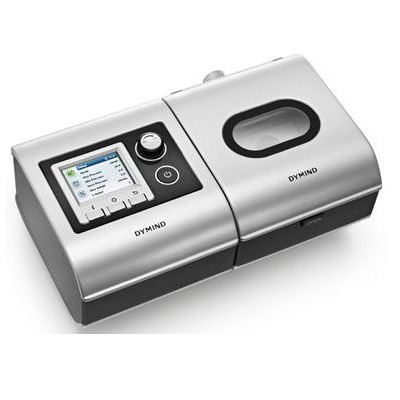Wearable System Detects COVID-19 Before Symptoms Appear
|
By HospiMedica International staff writers Posted on 22 Jun 2020 |

Image: Wearable System Detects COVID-19 Before Symptoms Appear (Photo courtesy of Empatica Inc.)
Scientists are developing a wearable system that will alert individuals when it detects a likely COVID-19 infection, enabling them to self-isolate and seek early treatment.
Empatica Inc. (Boston, MA, USA), an MIT spinoff, will validate the early warning system for COVID-19 and other respiratory infections using its wearable sensors and proprietary algorithm. The system, named Aura, is completely non-invasive, utilizing Empatica's medical smartwatches, software, and artificial intelligence capabilities. Aura will enable continuous and real-time insight into the likelihood of SARS-CoV-2 infection before symptoms present, and send a warning to the user and their healthcare provider.
Empatica will validate the system in partnership with the Biomedical Advanced Research and Development Authority (BARDA), part of the Office of the Assistant Secretary for Preparedness and Response at the US Department of Health and Human Services (HHS). In February 2019, Empatica and BARDA's Division of Research, Innovation and Ventures (DRIVe) began to develop a digital biomarker that predicts respiratory infections. Preliminary findings have been promising, showing a strong correlation between viral shedding and changes in a person's physiology. Empatica will now be sponsored to run a validation trial specific to early detection of COVID-19. The aim is to validate Empatica's algorithm in real-life settings, with the participation of healthcare workers who are exposed to a high viral load while treating hospitalized COVID-19 patients. They will wear the E4, Empatica's medical-grade research wearable wristband, for 30 days, and their physiological data will be reviewed against daily nasopharyngeal (NP) samples and a daily qRT-PCR swab, ensuring the highest ground truth.
“We are very proud to join forces with BARDA to help improve the health and safety of millions of Americans going back to work,” said Empatica CEO Matteo Lai. “This product introduces a new paradigm: empowering individuals and institutions with smart health monitoring, so that they will know early when they need to self-isolate and take care of themselves. Without BARDA's leadership and foresight over the past year, our early detection algorithm would not have reached this pivotal stage of clinical validation, which will accelerate our request for FDA's approval of Aura as a medical product for use by people at risk of contracting COVID-19.”
“We anticipate that access to real-time and actionable health information will empower people to seek medical advice and care sooner, or to adopt behavioral changes such as temporary self-isolation that can help reduce the spread of COVID-19 and similar infections,” said BARDA Acting Director, Gary Disbrow, Ph.D.
Related Links:
Empatica Inc.
Empatica Inc. (Boston, MA, USA), an MIT spinoff, will validate the early warning system for COVID-19 and other respiratory infections using its wearable sensors and proprietary algorithm. The system, named Aura, is completely non-invasive, utilizing Empatica's medical smartwatches, software, and artificial intelligence capabilities. Aura will enable continuous and real-time insight into the likelihood of SARS-CoV-2 infection before symptoms present, and send a warning to the user and their healthcare provider.
Empatica will validate the system in partnership with the Biomedical Advanced Research and Development Authority (BARDA), part of the Office of the Assistant Secretary for Preparedness and Response at the US Department of Health and Human Services (HHS). In February 2019, Empatica and BARDA's Division of Research, Innovation and Ventures (DRIVe) began to develop a digital biomarker that predicts respiratory infections. Preliminary findings have been promising, showing a strong correlation between viral shedding and changes in a person's physiology. Empatica will now be sponsored to run a validation trial specific to early detection of COVID-19. The aim is to validate Empatica's algorithm in real-life settings, with the participation of healthcare workers who are exposed to a high viral load while treating hospitalized COVID-19 patients. They will wear the E4, Empatica's medical-grade research wearable wristband, for 30 days, and their physiological data will be reviewed against daily nasopharyngeal (NP) samples and a daily qRT-PCR swab, ensuring the highest ground truth.
“We are very proud to join forces with BARDA to help improve the health and safety of millions of Americans going back to work,” said Empatica CEO Matteo Lai. “This product introduces a new paradigm: empowering individuals and institutions with smart health monitoring, so that they will know early when they need to self-isolate and take care of themselves. Without BARDA's leadership and foresight over the past year, our early detection algorithm would not have reached this pivotal stage of clinical validation, which will accelerate our request for FDA's approval of Aura as a medical product for use by people at risk of contracting COVID-19.”
“We anticipate that access to real-time and actionable health information will empower people to seek medical advice and care sooner, or to adopt behavioral changes such as temporary self-isolation that can help reduce the spread of COVID-19 and similar infections,” said BARDA Acting Director, Gary Disbrow, Ph.D.
Related Links:
Empatica Inc.
Latest COVID-19 News
- Low-Cost System Detects SARS-CoV-2 Virus in Hospital Air Using High-Tech Bubbles
- World's First Inhalable COVID-19 Vaccine Approved in China
- COVID-19 Vaccine Patch Fights SARS-CoV-2 Variants Better than Needles
- Blood Viscosity Testing Can Predict Risk of Death in Hospitalized COVID-19 Patients
- ‘Covid Computer’ Uses AI to Detect COVID-19 from Chest CT Scans
- MRI Lung-Imaging Technique Shows Cause of Long-COVID Symptoms
- Chest CT Scans of COVID-19 Patients Could Help Distinguish Between SARS-CoV-2 Variants
- Specialized MRI Detects Lung Abnormalities in Non-Hospitalized Long COVID Patients
- AI Algorithm Identifies Hospitalized Patients at Highest Risk of Dying From COVID-19
- Sweat Sensor Detects Key Biomarkers That Provide Early Warning of COVID-19 and Flu
- Study Assesses Impact of COVID-19 on Ventilation/Perfusion Scintigraphy
- CT Imaging Study Finds Vaccination Reduces Risk of COVID-19 Associated Pulmonary Embolism
- Third Day in Hospital a ‘Tipping Point’ in Severity of COVID-19 Pneumonia
- Longer Interval Between COVID-19 Vaccines Generates Up to Nine Times as Many Antibodies
- AI Model for Monitoring COVID-19 Predicts Mortality Within First 30 Days of Admission
- AI Predicts COVID Prognosis at Near-Expert Level Based Off CT Scans
Channels
Critical Care
view channel
Light-Based Technology to Measure Brain Blood Flow Could Diagnose Stroke and TBI
Monitoring blood flow in the brain is crucial for diagnosing and treating neurological conditions such as stroke, traumatic brain injury (TBI), and vascular dementia. However, current imaging methods like... Read more
AI Heart Attack Risk Assessment Tool Outperforms Existing Methods
For decades, doctors have relied on standardized scoring systems to assess patients with the most common type of heart attack—non-ST-elevation acute coronary syndrome (NSTE-ACS). The GRACE score, used... Read moreSurgical Techniques
view channel
Minimally Invasive Endoscopic Surgery Improves Severe Stroke Outcomes
Intracerebral hemorrhage, a type of stroke caused by bleeding deep within the brain, remains one of the most challenging neurological emergencies to treat. Accounting for about 15% of all strokes, it carries... Read more
Novel Glue Prevents Complications After Breast Cancer Surgery
Seroma and prolonged lymphorrhea are among the most common complications following axillary lymphadenectomy in breast cancer patients. These postoperative issues can delay recovery and postpone the start... Read morePatient Care
view channel
Revolutionary Automatic IV-Line Flushing Device to Enhance Infusion Care
More than 80% of in-hospital patients receive intravenous (IV) therapy. Every dose of IV medicine delivered in a small volume (<250 mL) infusion bag should be followed by subsequent flushing to ensure... Read more
VR Training Tool Combats Contamination of Portable Medical Equipment
Healthcare-associated infections (HAIs) impact one in every 31 patients, cause nearly 100,000 deaths each year, and cost USD 28.4 billion in direct medical expenses. Notably, up to 75% of these infections... Read more
Portable Biosensor Platform to Reduce Hospital-Acquired Infections
Approximately 4 million patients in the European Union acquire healthcare-associated infections (HAIs) or nosocomial infections each year, with around 37,000 deaths directly resulting from these infections,... Read moreFirst-Of-Its-Kind Portable Germicidal Light Technology Disinfects High-Touch Clinical Surfaces in Seconds
Reducing healthcare-acquired infections (HAIs) remains a pressing issue within global healthcare systems. In the United States alone, 1.7 million patients contract HAIs annually, leading to approximately... Read moreHealth IT
view channel
Printable Molecule-Selective Nanoparticles Enable Mass Production of Wearable Biosensors
The future of medicine is likely to focus on the personalization of healthcare—understanding exactly what an individual requires and delivering the appropriate combination of nutrients, metabolites, and... Read moreBusiness
view channel
Philips and Masimo Partner to Advance Patient Monitoring Measurement Technologies
Royal Philips (Amsterdam, Netherlands) and Masimo (Irvine, California, USA) have renewed their multi-year strategic collaboration, combining Philips’ expertise in patient monitoring with Masimo’s noninvasive... Read more
B. Braun Acquires Digital Microsurgery Company True Digital Surgery
The high-end microsurgery market in neurosurgery, spine, and ENT is undergoing a significant transformation. Traditional analog microscopes are giving way to digital exoscopes, which provide improved visualization,... Read more
CMEF 2025 to Promote Holistic and High-Quality Development of Medical and Health Industry
The 92nd China International Medical Equipment Fair (CMEF 2025) Autumn Exhibition is scheduled to be held from September 26 to 29 at the China Import and Export Fair Complex (Canton Fair Complex) in Guangzhou.... Read more

















